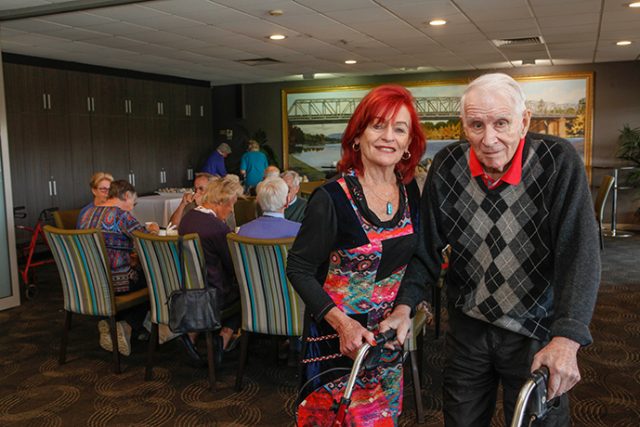
Challenge is the word that Penrith’s Ann Parer uses to describe her life with her husband John, who has Dementia.
Married for 32 years, her husband, a former surgeon at Nepean Hospital, lives a very different life to a decade ago.
About seven years ago, Mrs Parer noticed very subtle changes that crept in to his behaviours.
“He was a great reader, he used to read three books a week. He always had a book by the bed, and one in the toilet,” she laughed.
“Now he just sits and he doesn’t read.
“He’s not the Dementia type that wanders and gets lost. He doesn’t seem to complain, he’s just very mellow.”
While today Mrs Parer is supported by amazing friends and networks in the community, that wasn’t always the case.
“It was overwhelming and I wasn’t quite sure what was happening,” she said.
“Initially I thought he was just getting lazy. I was getting a bit agitated and angry in a way not knowing why it was like this.
“A few of our friends didn’t quite understand, we lost a couple of friends because of it.”
Through Anglicare, Mrs Parer attends coffee mornings where she can open up about how she’s feeling.
“There’s always the same group you go to and you just chat about how you’re going,” she said.
“They’re really a friendly, gorgeous lot of girls.”
The next challenge Mrs Parer faces is when her husband will need 24-hour residential care, something she said has a wait list time of about two years.
“They advise you to put your paper work in and it’s just so complex,” she said.
‘You are not alone’ is the message for this Dementia Awareness Month, and Anglicare At Home Dementia Advisory Service Nepean pushes this message through support for both the person with Dementia and the carer with education and socialisation strategies.
“A lot of people are living in the community and don’t know that these services exist,” Coordinator Narelle Bossard said.
“We find that the impact on people is remarkable. It’s a free service, and people don’t have to come to things if they don’t want to.”
The most important thing is to treat each case of Dementia individually, something that more funding will greatly help in the future.
“You can’t put everyone in the same bucket and expect that everything is going to change,” Ms Bossard said.
“We have to be with them on the journey.”
For more information about the local services, call 8805 0998 or visit myagedcare.gov.au.
Emily Newton
Emily Newton is the Weekender's police and political reporter. Emily is also the Weekender's Senior Journalist.
